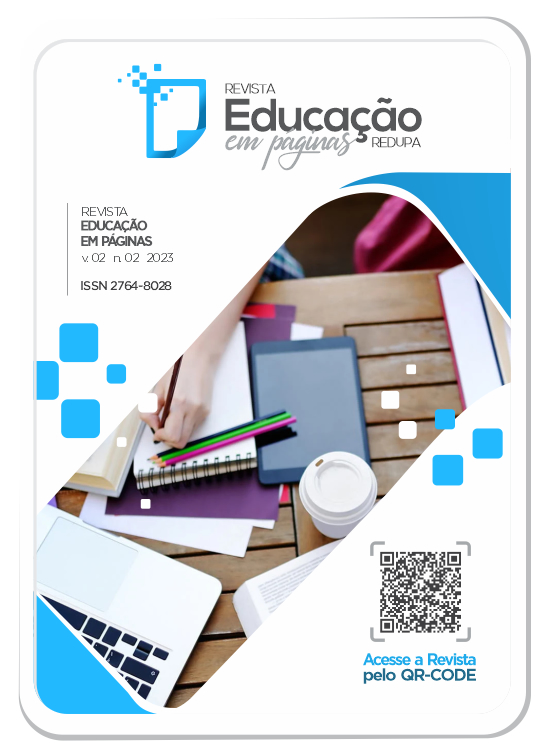Inclusive education in Mozambique: route and mishaps
DOI:
https://doi.org/10.22481/redupa.v2.12244Keywords:
inclusive education, inclusion, inclusive schools, special schoolsAbstract
The study presented in this paper is based on evidence that shows that school inclusion, especially after the Salamanca Declaration, is today a hegemonic policy proposal for education around the world (Bueno, 2005), and the realization that the democratic ideal of education for all still far from being achieved (Chambal, 2011). This approach starts from the problems that still address the effectiveness of an Inclusive Education (EI) policy, and seeks to chart the path of Inclusive Education in Mozambique, from its implementation to the present. This work is based on questioning the effectiveness of inclusive policies and aims i. to present the context of the implementation of inclusive education in Mozambique, its path, the instruments that support this policy; and, ii. take a critical approach to mishaps and the current context. Through the literature review on inclusion policies in Mozambique and around the world, this reflection concluded that Inclusive Education in Mozambique remains a challenge for government authorities. From the genesis of the implementation of a special education to the existing inclusion policy, it is experiencing a sinuous path marked by mishaps arising from conceptual amalgam and implementation.
Downloads
References
Aiscow, M. (1999). Understanding the Development of Inclusive Schools. Falmer Press.
Aiscow, M. (2009). Tornar a Educação Inclusiva: Como esta tarefa deve ser conceituada? In Favero, et. al. (2009). Tornar a Educação Inclusiva. Brasília: UNESCO. Pp. 11-23.
AM. (2009). Relatório Sobre Ensino Especial. X Legislatura. Comissão de Educação e Ciência ‒ Ensino Especial. Lisboa.
Artiles, A. & Dyson, A. (2005). Inclusive Education in the Global Age: The Promise of Comparative, Cultural-Historical Analysis. In Mitchell, D. (2005). Contextualizing Inclusive Education. London & New York: Routledge. Pp.37-62.
Bavo, N. & Coelho, O. (2019). Pertinência e Urgência da Língua De Sinais (L1) e do Português (L2/Le) no Currículo dos Alunos Surdos em Moçambique. Revista e-Curriculum, São Paulo, v.17, n.3, p. 909-932 jul./set. 2019, e-ISSN: 1809-3876. Currículo – PUC/SP. http://revistas.pucsp.br/index.php/curriculum.
Chambal, L. A. (2011). ‘As Políticas de Inclusão Escolar em Moçambique e a Escolarização dos Alunos com Deficiências uma Trajectória de Pesquisa’. X CNE- Educere. PUCPR. Curitiba: 7-10 de Novembro, 2011.
Clough, P. (2000). Theories of Inclusive Education: A Student's Guide. Sage/Paul. London: Chapman Publishing, 2000. In http: pt, / / www. Wikipédia. Org. Educação Especial, acessado a 20/5/2009. 13h.
Correia, L. M. (2001). Educação Inclusiva ou Educação Apropriada. In Rodrigues, D. (2001). Educação e Diferença: Valores e Práticas para Uma Educação Inclusiva. Cap. 9. Pp. 123-142. Colecção Educação Especial Nº 7. Porto: Porto Editora.
Correia, L. M., & Cabral, M. (1999). Uma nova política em educação. In Correia, L. M. (Ed.). Alunos com necessidades educativas especiais nas classes regulares, 17-43. Porto: Porto Editora.
EEIDCD (2020-2029). Resolução n.º 40/2020. (2020). Boletim da República, Sexta-feira, 10 de Julho de 2020, I Série – Número 131.
Hallahan, D.P., Kauffman, J. M., Pullen, P.C. (2014). Learners with Learning Disabilities. In Hallahan, D.P., Kauffman, J. M., Pullen, P.C. (2014). Exceptional Learners: An Introduction to Special Education. Pp. 163-200. Twelfth Edition. London: Pearson.
Kauffman, J. M., Nelson, C.M. Limpson, R.L. & Mock, D.R. (2011). Contemporary Issues. In Kauffman, J. M. & Hallahah, D.P. Handbook of Special Education. New York and London: Routledge.
Marchesi, À. (2001). A Prática das Escolas Inclusivas. In Rodrigues, D. (2001). Educação e Diferença: Valores e Práticas para Uma Educação Inclusiva. Cap. 7. Pp. 94-108. Colecção Educação Especial Nº 7. Porto: Porto Editora.
MEC. (2004). Plano Estratégico de Educação 2004 – 2008. Maputo/Moç.: Ministério da Educação.
MEC-DEE. (2004). Estratégia da Educação Inclusiva. Maputo/Moç.: Ministério da Educação.
Michaque, A. T. S. (2013). Políticas Educacionais como Mecanismo de Inserção das Pessoas Portadoras de Deficiência no Ensino: Uma Análise Histórica para o Caso de Moçambique e as Obrigações do Estado no Direito à Educação. In Massarongo-Jona, O. (2013). Revista de Direitos Humanos - Volume 2: Direitos da Pessoa com Deficiência. Maputo: UEM/FD/CDU. Pp. 29-55.
Milice, G. N. M. (2010). ‘Planificação Linguística no Ensino Especial em Moçambique: Identificação de Presumíveis Problemas na 6ª Classe - Caso das Escolas Especiais nº 1 e 2 da Cidade de Maputo. Monografia de conclusão do Curso de Licenciatura em Linguística e Literatura (não publicada). Maputo: FLECS/UEM. 30p.
Milice, G. N. M. (2016). ‘Educação Técnico-Profissional e o Mercado de Emprego na Província de Maputo: O Caso da Laresh Internacional, 2000 – 2014’. Dissertação de Mestrado. (não publicada). Maputo: FLECS/UEM. 130p.
Milice, G. N. M. (2022). Literacia para o Ensino e Aprendizagem da leitura em Moçambique: do contexto multilingue à emergência de uma Educação iminentemente Inclusiva. Revista Educação em Páginas/REDUPA. 29p.
MINED. (2006). ‘Plano Estratégico de Educação e Cultura, 2006 – 2010/11: Fazer da escola um Pólo de Desenvolvimento Consolidando a Moçambicanidade’. Maputo/Moç.: Ministério da Educação.
MINED. (2017). Plano Nacional de Acção de Leitura e Escrita (PLALE): Ler e Escrever em casa, Ler e Escrever na Escola e Ler e Escrever na comunidade. Maputo/Moç.
MINED. (s/d). Programa de Português para o 3º Ciclo do Ensino Básico (6ª e 7ª Classes). Maputo/Moç.: INDE
MINEDH. (2012). ‘Plano Estratégico de Educação, 2012-2016: Vamos aprender Construindo Competências para um Moçambique em constante desenvolvimento’. Maputo/Moç.: Ministério da Educação.
Mitchell, D. (2005). Sixteen Propositions on the Context of Inclusive Education. In Mitchell, D. (2005). Contextualizing Inclusive Education. London & New York: Routledge. Pp. 1-21.
Moçambique. (2004). Constituição da República de Moçambique. Imprensa Nacional
Moçambique. (2012). Plano Nacional da Área da Deficiência – PNAD II 2012-2019
Norwich, B. (2008). Dilemmas of Difference, Inclusion and Disability: International perspectives and future directions. London & New York: Routledge.
Reid, G. (2005a). Dyslexia. In Lewis, A. & Norwic, B. (2005). Special Teaching for Special Children? Pedagogies for inclusion. New york: OUP. Pp. 138-150.
Warnock, H. M., at. al. (1978). Report of the Committee of Enquiry into the Education of handicapped Children and Young People. London: Her Majesty's Stationery Office.
Downloads
Published
How to Cite
Issue
Section
License
Copyright (c) 2023 Gilberto Necas Mucambe Milice

This work is licensed under a Creative Commons Attribution 4.0 International License.






